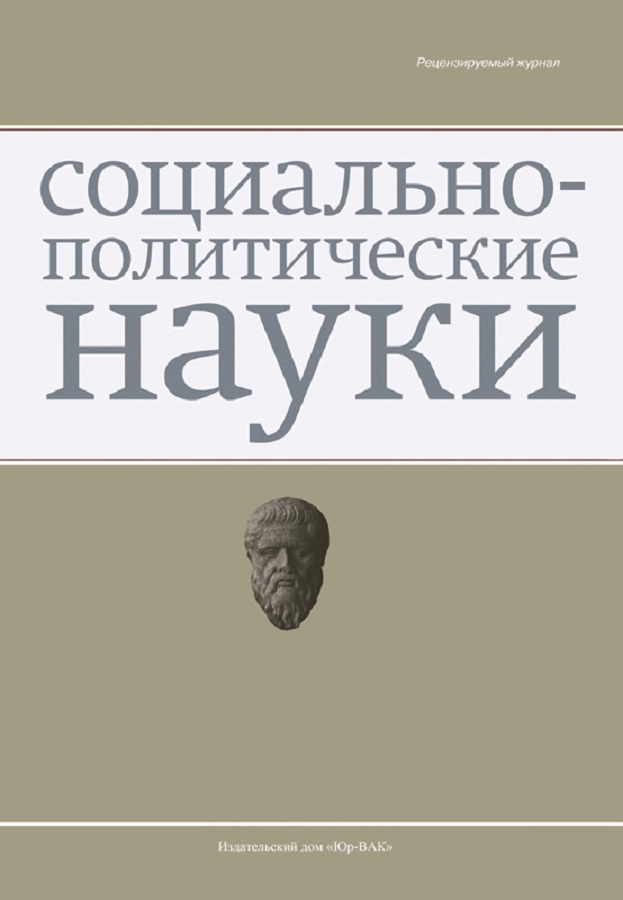The Influence of Gamification on the Innovative Motivation of Employees
- Authors: Kuleshov S.M.1, Tsaryuk D.A.1
-
Affiliations:
- Financial University under the Government of the Russian Federation
- Issue: Vol 13, No 4 (2023)
- Pages: 131-136
- Section: Economic Sociology
- URL: https://journals.eco-vector.com/2223-0092/article/view/585032
- DOI: https://doi.org/10.33693/2223-0092-2023-13-4-131-136
- ID: 585032
Cite item
Abstract
The purpose of this work is to study the influence of gamification on the innovative motivation of employees. The main trends related to labor motivation in the market were studied. In the course of the analysis, promising tools of labor motivation were identified, among which gamification occupies a special place. Gamification acts as a management tool, which consists in integrating game mechanics into the workflow. The structural elements of gamification, its types, properties and stages of application were considered. In addition, the features of the application of gamification in the global context were studied, as well as the features of Russian practice were determined. To determine the impact of gamification on the innovative motivation of employees, an empirical study was conducted aimed at interviewing the heads of organizations and their employees. Conclusions. Gamification acts as a promising direction of labor motivation and is highly appreciated by both managers and employees. At the same time, a number of problems are highlighted that make it difficult to implement the principles of gamification, especially for small enterprises. The expansion of the use of gamification in the management environment has a positive impact on the prospects of this tool, since at the moment it is used in a limited number of areas.
Full Text
About the authors
Sergey M. Kuleshov
Financial University under the Government of the Russian Federation
Author for correspondence.
Email: smkuleshov@fa.ru
ORCID iD: 0000-0003-0408-5999
candidate of sociology, associate professor, associate professor at the department of sociology of the faculty of social sciences and mass communications
Russian Federation, MoscowDmitry A. Tsaryuk
Financial University under the Government of the Russian Federation
Email: dmitrytsaryuk@mail.ru
ORCID iD: 0000-0003-0785-0588
applicant for a degree candidate of sociology at the department of sociology of the faculty of social sciences and mass communications
Russian Federation, MoscowReferences
- Averyanova O.V., Blagikh I.A., Ryabukhina A.A. Gamification of socio-economic communications: New challenges. Problems of the Modern Economy. 2020. No. 3. Pp. 67–70. (In Rus.)
- Golub I.N. Gamification as a tool for motivating staff work. Humanities, Socio-economic and Social Sciences. 2021. No. 8. Pp. 157–160. (In Rus.)
- Zhidkova M.A., Knyazeva A.A. Gamification in the conditions of digitalization of the economy. Economics and Business: Theory and Practice. 2020. No. 12-1. Pp. 239–244. (In Rus.)
- Kovalenko B.B., Gusarova T.I. Gamification as a management decision-making tool. Scientific Journal of NIU ITMO. The Series: Economics and Environmental Management. 2020. No. 1. Pp. 103–111. (In Rus.)
- Kogel A.S., Fenyuk A.N. Gamification as a marketing tool: Psychological aspect. Skif. Questions of Student Science. 2019. No. 9 (37). Pp. 56–60. (In Rus.)
- Kuznetsova E.V. Gamification in personnel management. Economic Management: Methods, Models, Technologies. 2019. Pp. 168–171. (In Rus.)
- Lanskaya D.V., Yakovlenko A.E., Dyachenko Yu.Yu. Gamification in the process of scientific, innovative and creative activity: Forms and methods of talent motivation. Bulletin of the Academy of Knowledge. 2020. No. 2 (37). Pp. 165–172. (In Rus.)
- Lezhenina A.A. Gamification as a tool for the development of corporate competencies of personnel. Institute of Psychology of the Russian Academy of Sciences. Organizational Psychology and Labor Psychology. 2019. Vol. 4. No. 2. Pp. 171–183. (In Rus.)
- Muradova N., Tikhonov A.I., Konovalova V.G. Gamification in personnel adaptation. Moscow Economic Journal. 2019. No. 7. Pp. 58–58. (In Rus.)
- Ruvenny I.Ya., Kasimova E.R., Kuznetsova E.V. Gamification as a management technology. Business. Education. The right. 2020. No. 2. Pp. 171–175. (In Rus.)
- Stefanova N.A. Gamification as a tool of modern marketing. Improving Accounting, Analysis and Control as Information Support Mechanisms for Sustainable Economic Development. 2019. No. 7-1. Pp. 91–95. (In Rus.)
- Milanesi M., Guercini S., Runfola A. Let’s play! Gamification as a marketing tool to deliver a digital luxury experience. Electronic Commerce Research. 2022. Pp. 1–18.
- Noorbehbahani F., Salehi F., Jafar Zadeh R. A systematic mapping study on gamification applied to e-marketing. Journal of Research in Interactive Marketing. 2019. Vol. 13. No. 3. Pp. 392–410.
- Thorpe A.S., Roper S. The ethics of gamification in a marketing context. Journal of Business Ethics. 2019. Vol. 155. Pp. 597–609.
- Wünderlich N.V. et al. The great game of business: Advancing knowledge on gamification in business contexts. Journal of Business Research. 2020. Vol. 106. Pp. 273–276.
- Xu H. How to gamify online business: A case study based on “SMART” model. Journal of Service Science and Management. 2020. Vol. 13. No. 3. Pp. 516–534.
Supplementary files











